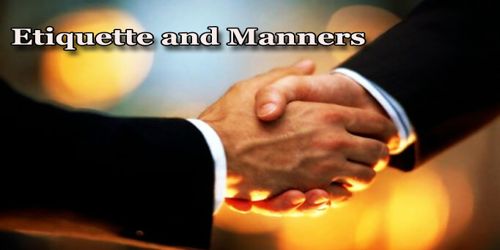From our very childhood, we learn the lesson of being good-mannered and well behaved. This quality is something that comes to us through tradition and culture. We learn the lesson as to how to behave in front of an outsider. We also get the lesson of how to approach an elder, to be quiet when our seniors speak and show proper respect to them. Another important teaching that we get is that we should always follow the rules of behavior no matter where we are. The two most important terms of social behavior are etiquette and manners. The word ‘etiquette’ comes from the French word meaning the rules of correct behavior in society. Whereas the word ‘manners’ means the behavior that is thought to be polite in a particular society or culture. Manners can be either bad or good. Ill-mannered persons are despised by all. According to Emily Post, perhaps the most influential American writer on etiquette in the twentieth century, “manners are made up of trivialities of deportment which can be easily learned if one does not happen to know them; manner is personality the outward manifestation of one’s innate character and attitude toward life.” Manners are common sense, a combination of generosity of spirit and specific know-how. Rules of etiquette are the guiding codes that enable us to practice manners. Etiquette and manners vary from culture to culture and society to society. We learn etiquette and manners from our parents, families and various institutions. There are rules of behavior for all kinds of social occasions. We should learn and practice these rules on a regular basis. And most importantly we should follow the rules of behavior in our day-to-day life.
Etiquette and Manners
















